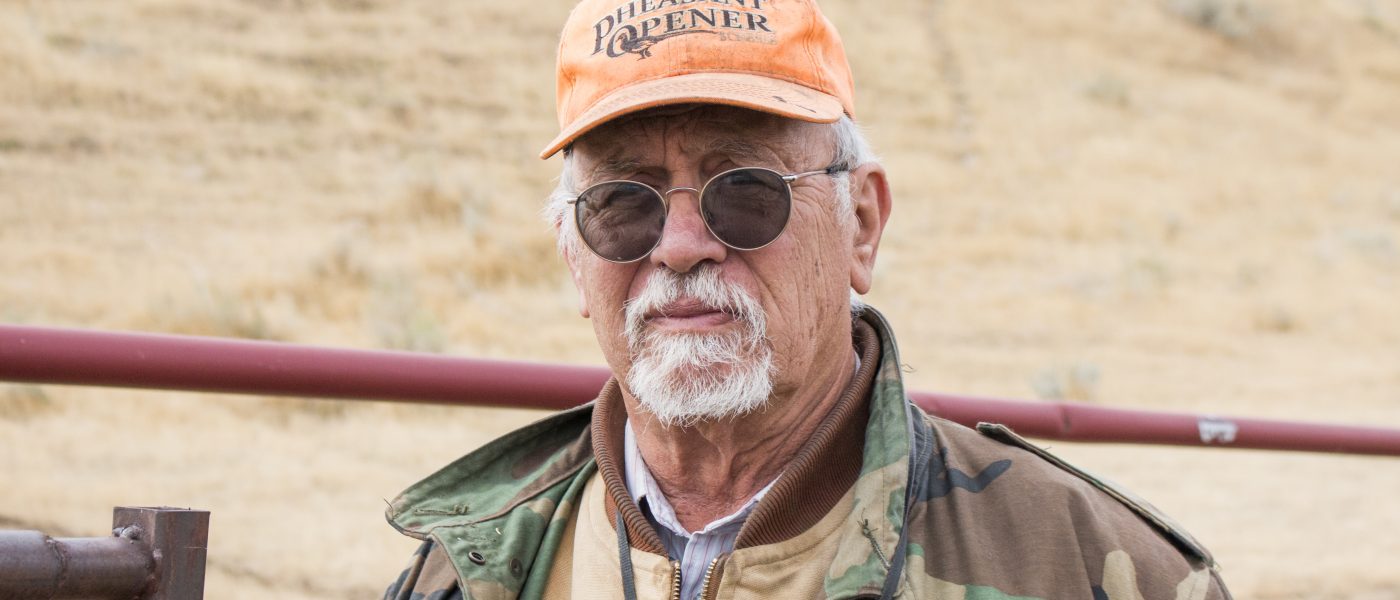
Homegrown Stories is a storytelling project from our partners at Western Organization of Resource Councils (WORC). It celebrates the hardworking people in our food system trying to do things right. The people of these stories are hard at work to create diverse, wholesome, regional food systems in our communities. They feature people working hard to keep the land healthy and their communities nourished.
WORC gave us permission to repost these farmers’ Homegrown Stories here in an effort to change the narrative of agriculture in America.
Gilles Stockton – Exposing Corporate Power in the Cattle Industry
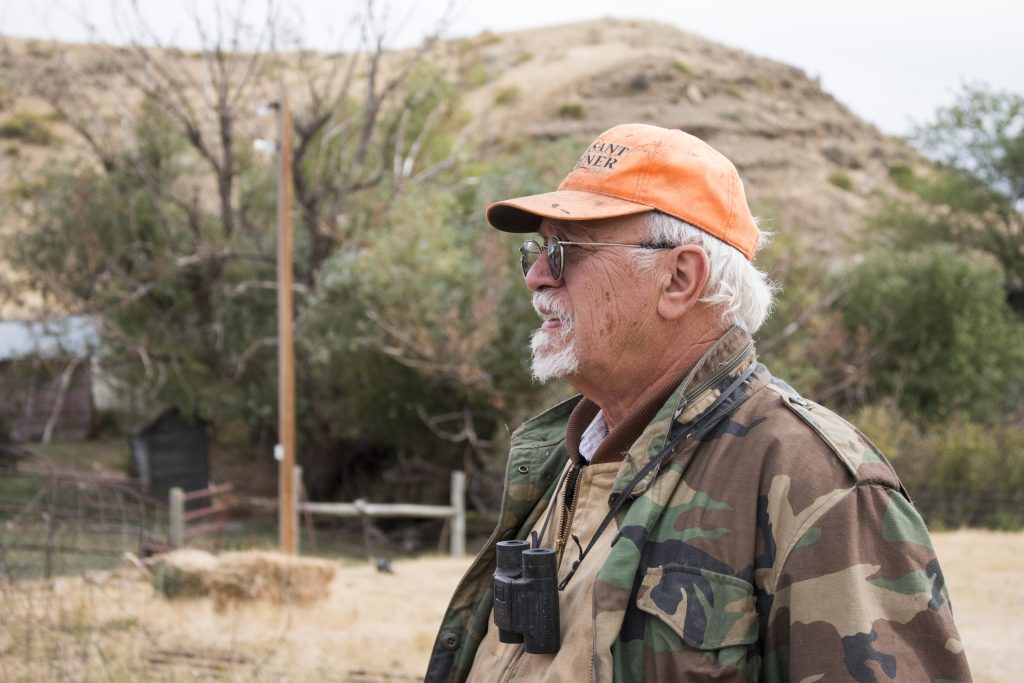
“In 1920 Grass Range was served by a railroad spur. There were two banks, three automobile and farm machinery dealers, hotels, department stores, a doctor, a pharmacy…and today Grass Range is a ghost town,” said Gilles Stockton. Gilles was born in France. His father was in the army, his mother was French, they met during the last year of World War II. Gilles grew up in Grass Range, Montana, and has been operating the family ranch since 1975.
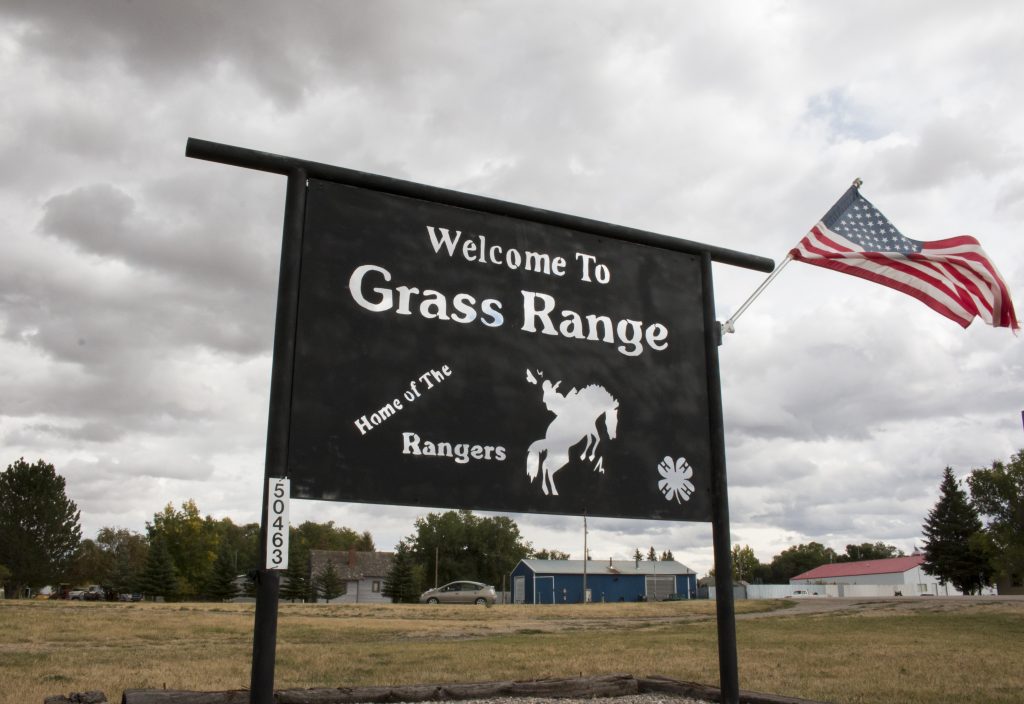
A 2016 census determined that the population of Grass Range is 108 people. Grass Range is part of Fergus County, Montana.
“The last 40-50 years has been a huge time of transition in the world,” said Gilles. “There’s both really positive things that have been going on – changes in technology and possibilities, economic changes and possibilities for people around the world – but there’s also a lot of really scary stuff happening. And one of the scary things is the domination of global corporation structure, particularly in agriculture. And that’s what we were doing with Northern Plains Resource Council and Western Organization of Resource Councils, trying to protect family farmers and the integrity of public and competitive markets in agriculture.”
Gilles joined Northern Plains Resource Council at the group’s annual meeting in 1987. The main speaker, Benny Bunting, was a contract chicken farmer from North Carolina. He talked about the consolidation and vertical integration of the poultry industry.
“He ended his presentation with telling us cattle ranchers that what happened in his industry is happening in ours. He said, ‘But you still have time. Don’t let yourself become like me – a serf on my own land.’ That really rung a bell – concern there – with a small group of us that were attending that meeting. We immediately formed a committee to see what could be done about the consolidation, the monopolization in the cattle industry.”
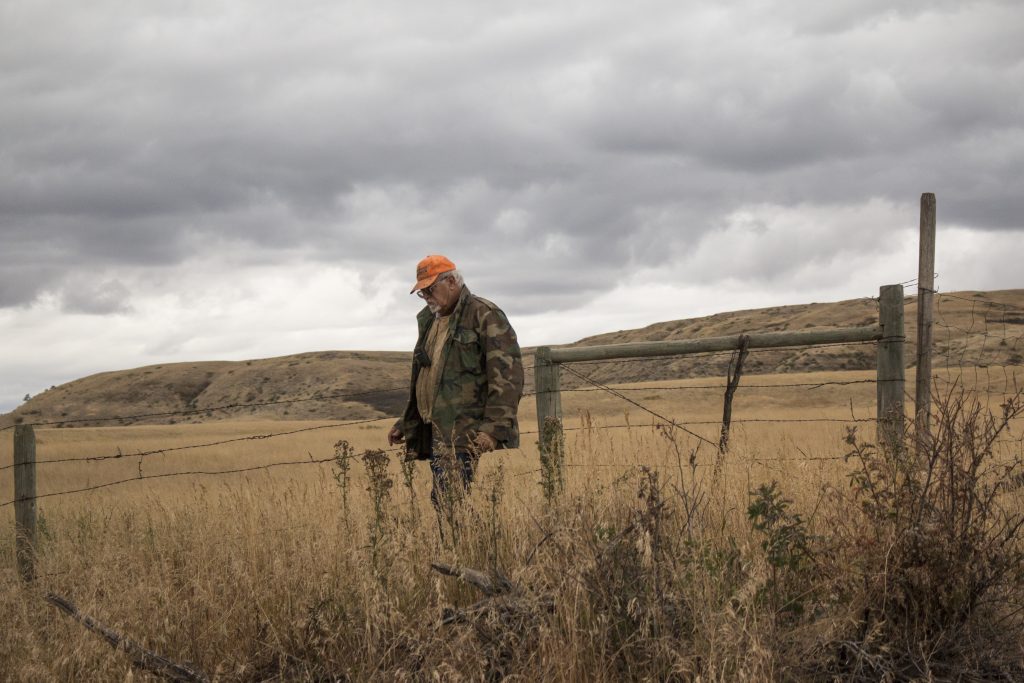
Gilles Stockton on a home pasture in Grass Range, Montana.
“We learned about an obscure law, the Packers and Stockyard Act of 1921 and, in reading that, we came to understand what was happening in the beef industry was blatantly illegal — the consolidation of all of the different beef packers. You went from a period of say 1975-1980 where you had a much larger number of beef packers to a consolidation where four packers today control 85 percent of the business of slaughter and processing cattle.”
“In 1921, as a result of the Packers and Stockyard Act, there was a consent-decree that required those packers – the cartel at that time – to divest themselves of their market centers. They actually owned the stockyards where the livestock were marketed. And they owned the transportation railcars. So the consent-decree said they had to divest themselves of their stockyards and they had to divest their monopoly of that transportation. There wasn’t actually a breakup of the five packers, but over the next intervening decades, the packing industry and the cattle industry actually got less concentrated. And the period where there was the least concentration was 1975. And then suddenly, the thinking in Washington, D.C. on antitrust changed, and they quit enforcing the Packers and Stockyards Act and every other anti-trust act. And, as a result we’ve now got monopolies in virtually every industry you can think of.”
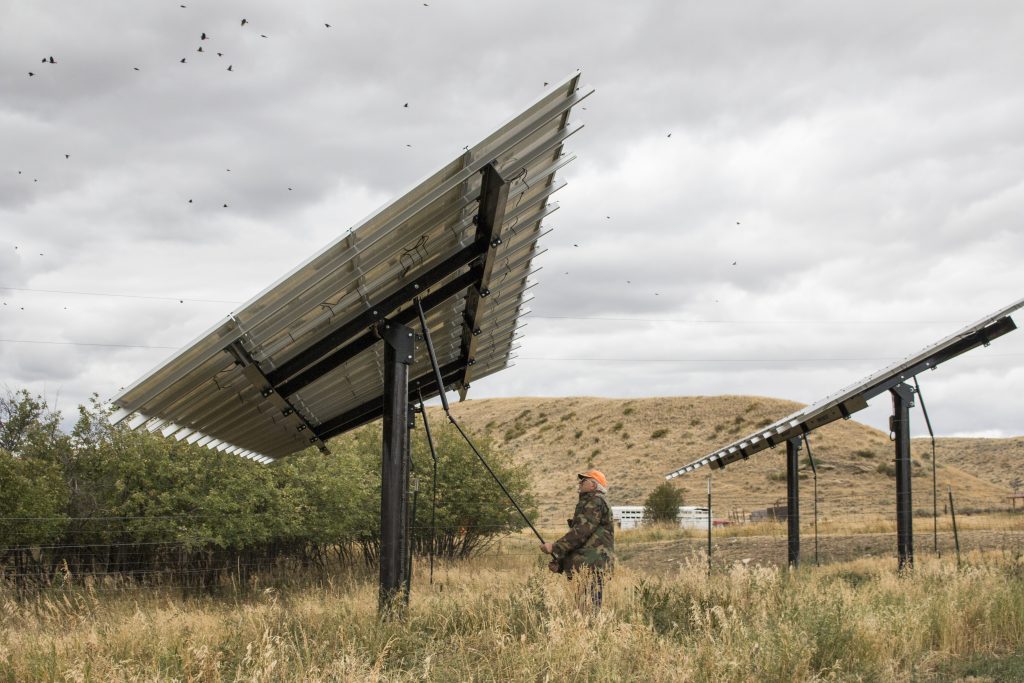
Gilles adjusts his solar panels at his home.
American agriculture policy was shifted further in favor of larger corporations and further against family farmers and ranchers in the 1990s. “For the cattle industry, NAFTA – North American Free Trade Agreement – has been nothing but an unmitigated disaster…right from its beginning,” said Gilles. “We already had a campaign going on about the monopolization of the beef packing industry and how it was consolidating and how the prices that we were receiving for our feeder calves was obviously less and less competitive. Well, NAFTA compounded that – because it brought the entire Canadian cattle herd into the United States as part of a captive supply that the packer monopoly could draw upon to manipulate prices here.”
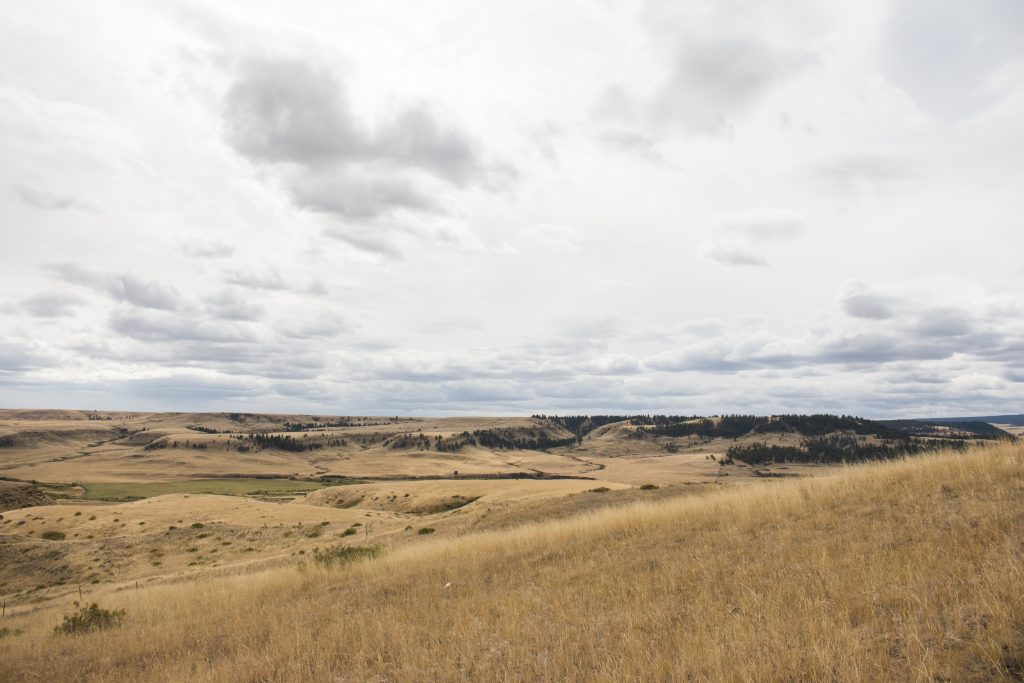
Grass Range, Montana.
Gilles recalls a time when NAFTA’s failure was illuminated in 2003, when Canadian beef imports halted due to cases of bovine spongiform encephalopathy in Canada (also known as mad cow disease.) The U.S. cattle market jumped 25 percent overnight and ranchers received good prices for three or four years until Canadian beef imports began again.
“The trade agreement trumped the safety concerns for consumers. So we started importing beef and cattle from Canada even though it was still risky for our consumers. And it trumped the economic needs of America’s cattle industry. It was more important to our policy makers that we had the trade than what happened to a consumer or to the cattle industry. Which just shows you how distorted this idea of so-called free trade is and has been to this day. We’re not really looking out for the interest of Americans, we’re looking out for the interests of transnational corporations.”
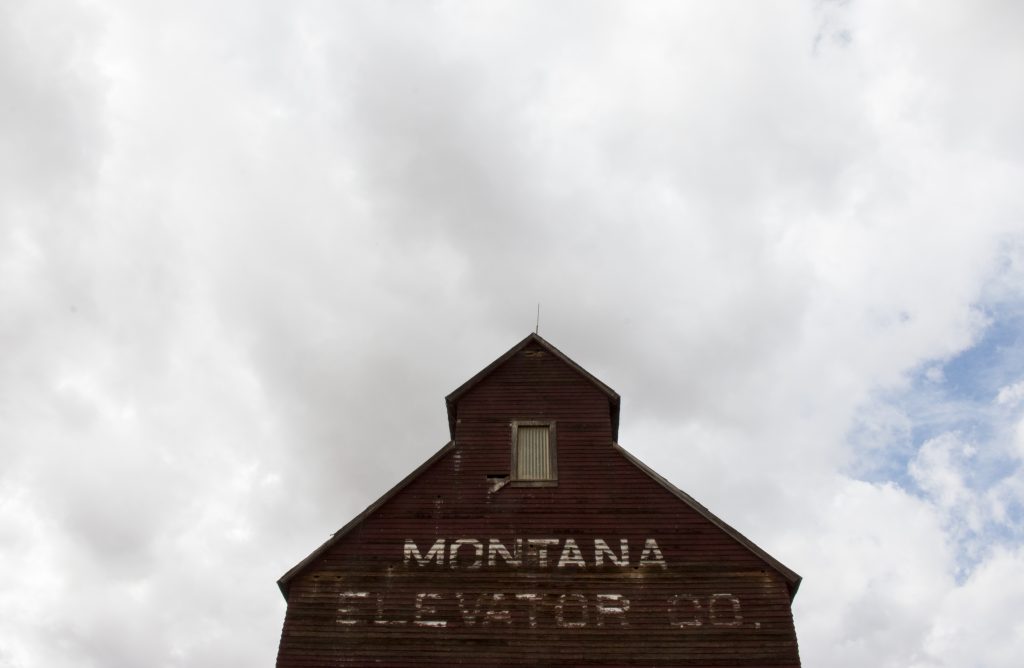
An abandoned grain elevator in downtown Grass Range, Montana.
The repeal of Country of Origin Labeling (COOL) was another agricultural policy that put the interests of transnational corporations ahead of the American rancher and consumer. Gilles and Northern Plains fought hard for COOL. With COOL, the American consumer had a choice to support American beef. In 2015, after a successful case brought by Canada and Mexico, the World Trade Organization ruled that the U.S. requirements for COOL violated international trade laws. Shortly after that ruling, Congress voted to repeal COOL.
“Why are corporate rights more important than the rights of workers and consumers?”
“It seems like American consumers should have the right to know where the things they purchase come from – particularly their food,” said Gilles. “That consumers can be denied by a non-representative body – an international body – the World Trade Organization is just wrong. It falls into that whole category of ‘why are corporate rights more important than the rights of workers and consumers?’ It goes right to the heart of our national sovereignty.”
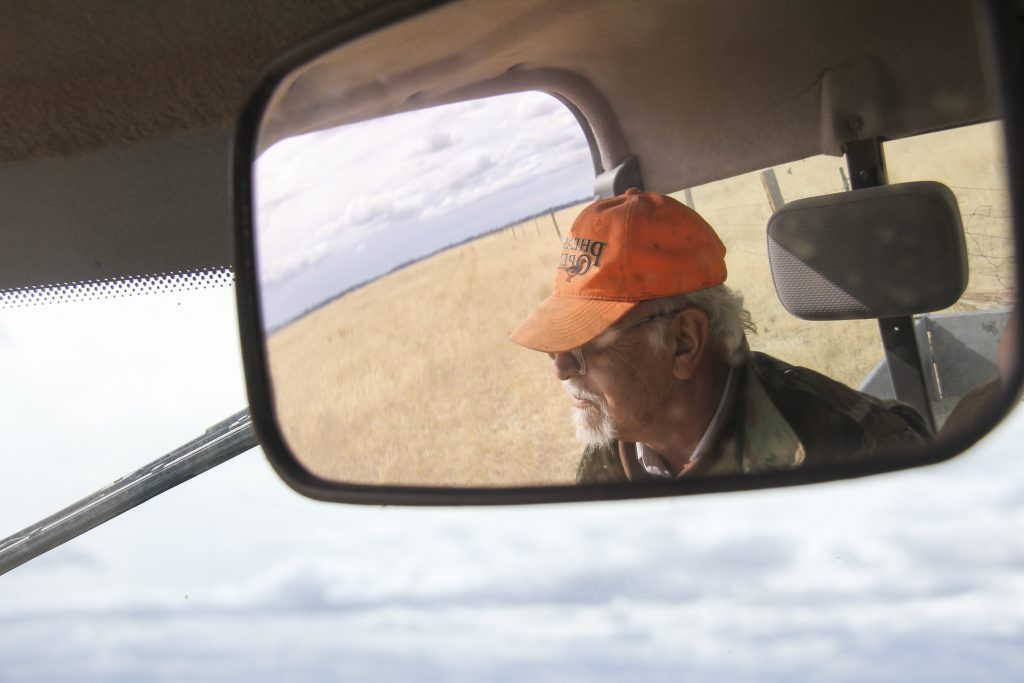
“Why am I speaking out about trade, COOL and negotiations? The existing trade treaties have been a disaster for cattle producers. I’ve been a cattle producer and it has cost me hundreds of thousands of dollars. So it’s affected my bank account. It has had a negative effect on the community in which I live in. It affects my neighbors and friends, it distorts the economics of everything. In a more idealistic sense, it has undermined the sovereignty of our democracy.”
Gilles is adamant that, in order to have a fair trade system, we need to prioritize communities over corporations. “We need to renegotiate from a position that says citizens have rights, workers have rights, communities have rights. Trade agreements should look and protect their concerns. And corporations should be subservient to those rights,” said Gilles.
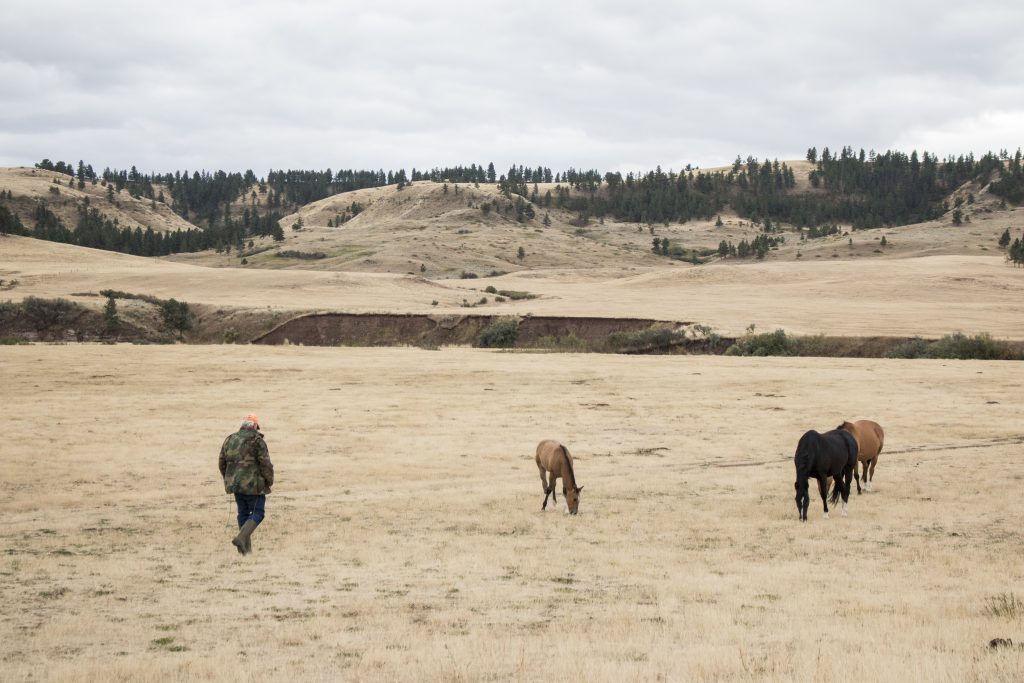
Gilles walks towards his horses out on pasture.
January 2022 Update
The bi-partisan American Beef Labeling Act would mandate COOL for beef and is making its way through the U.S. Senate.
Join us in taking action by urging your senators to co-sponsor the bill.
